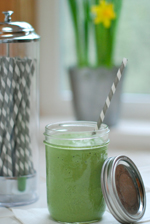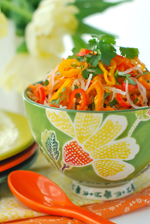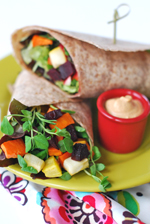Juicers
Fresh juice has the ability to distribute a significant variety of nutrients, recognized as enzymes, which are your body’s labor power. Performing as catalysts in hundreds of thousands of chemical reactions that occur throughout your body, enzymes are crucial for digestion and amalgamation of food, for conversion of food packs into body tissue, and for the creation of energy at the cellular level. In fact, enzymes are vital for most of the metabolic actions taking position in your body every second of every day.
Fresh juices are a wonderful resource of enzymes. The freshness of juice is one of their key features, since enzymes are damaged by high temperature. Given that fruits and vegetables are juiced uncooked, the enzymes are still there when you drink the juice!
Fruit and vegetable juices are also excellent sources of the traditional nutrients and juicing is a fantastic way to absorb the maximum nutritional content of your fruits and vegetables. All the enzymes, water-soluble vitamins and minerals built-in in these foods are condensed into one glass of juice. Since juicing eliminates the hard to digest fiber, nutrients are obtainable to the body in larger quantities than if the piece of fruit or vegetable was eaten whole. This means the vastly concentrated nutrients go straight into the bloodstream!
The majority of us don’t consume sufficient amounts of fruits and vegetables to acquire the benefits they offer. For instance, even though the National Cancer institute suggests 5 servings of vegetables and 3 servings of fruits every day, the reality is this: The typical American consumes merely 1 1/2 servings of vegetables and, generally, no fruit on any given day. Juicing fruits and vegetables takes only minutes and you can receive all of the benefits in a glass of fresh and tasty juice.
Fruits and vegetables offer another substance that is completely fundamental for good health – water. Over 65% of most of the cells in the human body are made of water, and in some tissues, such as the brain, the cells may be made up of as much as 80% water. Water is extremely necessary for good health, yet most people don’t consume enough water each day. Fruit and vegetable juices are free of unnecessary substances and are bursting with pure, clean water.
Experts recommend that you should consider the following variables before deciding on a juicer.
•Consider what you want to juice. A wheat grass devotee needs a different machine than someone who merely wants fresh-squeezed grapefruit juice. Centrifugal ejection machines are good all-purpose juicers. These juicers eject the pulp into a separate container on the side. Low-speed masticating juicers are superior to centrifugal ejection machines when it comes to juicing leafy greens, and their low speed reduces nutrient degradation. A citrus juicer is all you need to squeeze oranges, lemons, limes and grapefruit.
•Check the warranty. Juicer warranties, which range from 90 days to 15 years, may cover the motor for a longer period than the other parts. Warranty length usually corresponds to price, but not always.
•Centrifugal ejection juicers are the best all-around choice. This type of juice extractor offers ease of use, versatility and price. These models eject pulp into a separate container, where it stays until you empty it. Centrifugal juicers (which do not eject pulp) squeeze more juice from fruit and vegetables, but they require you to stop juicing to discard the pulp. They are also harder to clean.
•If you want to juice hard vegetables and leafy greens, look at a masticating or double-auger juicer. Such juicers use a slow, grinding motor that doesn’t require high wattage. They remind me of a meat grinder. If you ever go and buy fresh wheat grass at a juicing place, you will see a masticating juicer juicing the wheat grass. These models take more time but yield juice with less pulp.
Alkaline Sister Yvonne


 Alkaline Green Smoothie
Alkaline Green Smoothie Carrot, Jicama & Sweet Pepper Slaw
Carrot, Jicama & Sweet Pepper Slaw Roasted Root Wrap
Roasted Root Wrap
Comments on this entry are closed.